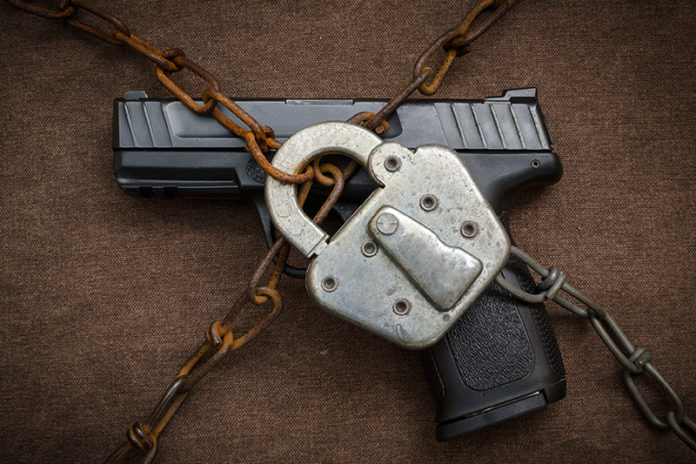It’s not about guns. It’s about citizenship.
That’s the takeaway from a 4th Circuit Court of Appeals ruling issued last week that strikes down a law preventing licensed firearms dealers from selling handguns to adults under 21.
Analysts predict the case, Hirschfeld v. ATF, may reach the Supreme Court on appeal.
Circuit Judge Julius N. Richardson centered the decision on age restrictions rather than gun rights, asking and answering the key question in the first paragraph of his 88-page majority opinion. It doesn’t require much familiarity with legal writing to recognize that choice as an effort to reframe the debate.
“When do constitutional rights vest? At 18 or 21? 16 or 25? Why not 13 or 33? In the law, a line must sometimes be drawn,” Richardson wrote. “But there must be a reason why constitutional rights cannot be enjoyed until a certain age. Our nation’s most cherished constitutional rights vest no later than 18. And the Second Amendment’s right to keep and bear arms is no different.”
Tanner Hirschfeld and Natalia Marshall sued the Bureau of Alcohol, Tobacco, Firearms and Explosives, which regulates firearms dealers and is responsible for enforcing a 1968 law that limits the sale of handguns to buyers 21 and older. The law doesn’t entirely prevent ownership, as 18, 19 and 20-year-olds could still lawfully obtain pistols and revolvers as gifts.
Though Hirschfeld’s name is listed first in court filings, the majority deemed his claims to be moot because he’s now 21 and is no longer subject to the restriction. Marshall, who is 19, wants to buy a handgun for self-defense, noting in the lawsuit that she obtained a domestic violence protective order against an ex-boyfriend and her work as an equestrian trainer often places her in remote, rural areas where she may feel unsafe without access to a defensive weapon.
The plaintiffs lost in federal district court, with Senior U.S. District Judge Glen E. Conrad ruling in October 2019 that the age restriction is primarily a burden on licensed dealers and doesn’t qualify as a “functional prohibition” on gun ownership. The 4th Circuit panel disagreed, and Richardson wrote, “Not all young adults have friends or family members who are able or willing to gift them a gun.”
Appellate judges noted that the Constitution’s framers intended the Second Amendment for adults 18 and up. An appendix of colonial militia laws that predate the Bill of Rights’ ratification filed with the majority opinion shows 16 and 18 as the only age limits on armed militia service.
The 4th Circuit is likely to rehear the case en banc, and whichever party loses that round is expected to appeal. On his “Volokh Conspiracy” blog, UCLA law professor Eugene Volokh predicted that the Supreme Court will weigh in if the full 4th Circuit affirms the three-judge panel, as that would create a circuit split. The 5th Circuit previously upheld the age restriction.
There’s no getting around the politically charged gun debate, and much of Richardson’s voluminous majority opinion and Circuit Judge James A. Wynn Jr.’s 53-page dissent provide fresh ammunition for Second Amendment defenders and gun control advocates. But if the decision stands, it could limit the spread of congressionally sanctioned age discrimination.
Eighteen is the legal age of majority — the dividing line between minors and adults. Yet officials continue to dilute this distinction and saddle young Americans with restrictions, favoring 21 as the de facto age of reason.
In 1984, the National Minimum Drinking Age Act strong-armed state legislatures into adopting 21 as the new standard by threatening to reduce their share of federal highway funds. Tobacco is now treated similarly, as Congress raised the minimum purchase age in December 2019.
All 18 states where marijuana is legal for recreational use set the purchase age at 21 rather than 18. Pot remains illegal under federal law, though perhaps not for long.
Courts are less skeptical of these age restrictions because there’s no constitutional right to buy beer, cigarettes and cannabis. Upholding Hirschfeld v. ATF, however, could still build momentum for efforts to empower young Americans instead of infantilizing them.
Are 18-year-olds real grownups or adults in name only? At least where gun purchases are concerned, the highest court in the land may soon decide.





























